One everyday product is sending dogs to vets nationwide, and it’s probably in your home right now.

Dogs are natural explorers, which usually means trouble when common household items double as health hazards. One specific product tops the list every year for emergency vet visits, and the scary part is most owners don’t think twice about leaving it out. Here’s what it is, why it’s dangerous, and what you can do to keep your dog from an expensive and terrifying trip to the ER.
1. Chewing on batteries causes internal chemical burns.

According to the American Veterinary Medical Association, batteries are one of the top culprits behind emergency pet visits because their casing breaks easily under chewing pressure. When punctured, they leak corrosive chemicals that burn tissue in the mouth, throat, and stomach. Dogs often grab remotes, toys, or electronic devices without owners realizing it, leading to painful and life-threatening injuries. X-rays, emergency surgery, and long-term monitoring are often needed to treat the damage, making prevention critical.
2, Swallowed socks lead to major intestinal blockages.
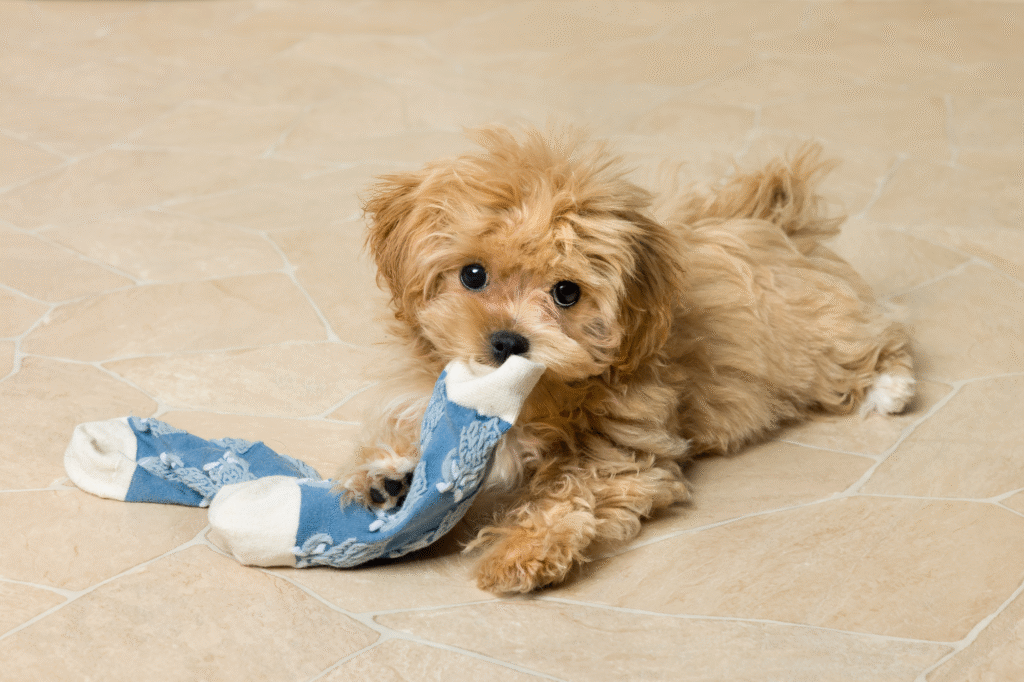
As stated by the American College of Veterinary Surgeons, socks are among the most common foreign objects surgically removed from dogs. They’re soft, smell like their favorite person, and are just the right size to swallow, which dogs unfortunately do more often than you’d think. Blockages prevent food and water from passing, causing vomiting, pain, and even death if untreated. Surgeries to remove these items are expensive and risky, especially if the sock travels deep into the digestive tract.
3. Grapes and raisins shut down kidneys fast.

Reported by the ASPCA’s Animal Poison Control Center, grapes and raisins can cause sudden kidney failure in dogs, even in small amounts. The exact toxic compound is unknown, but the outcome is clear: vomiting, lethargy, and rapid organ damage. Many owners accidentally feed grapes as a quick snack, unaware of the risk, while others leave raisins accessible in cereals or trail mixes. Once ingested, immediate treatment is needed to prevent permanent damage, and even then, recovery isn’t guaranteed.
4. Xylitol gum quietly poisons without warning.

This common sugar substitute, often found in gum and low-calorie foods, triggers a massive insulin release in dogs, causing life-threatening hypoglycemia. Symptoms include weakness, vomiting, tremors, and seizures, often within an hour of ingestion. Owners rarely expect a sweetener to be so dangerous, which is why it remains one of the most common toxicities seen by emergency vets. Quick intervention is vital, and even then, liver damage can develop in severe cases.
5. Electrical cords turn curiosity into disaster.
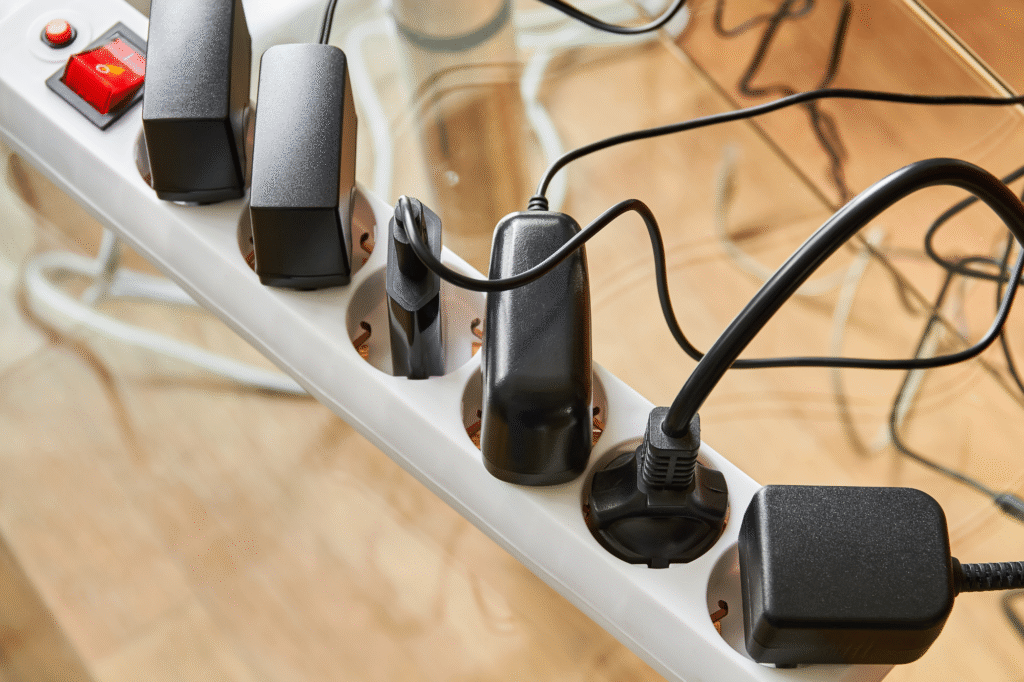
Puppies and young dogs often chew on cords while teething, leading to electric shocks or burns in the mouth and throat. In severe cases, the electrical current can trigger heart rhythm issues or respiratory failure. Even a minor shock can cause painful injuries and long-term sensitivity. Protective coverings and cord management are simple fixes that prevent an emergency, yet many owners don’t notice their dog’s chewing habit until something goes wrong.
6. Corn cobs lodge in places surgery can barely reach.
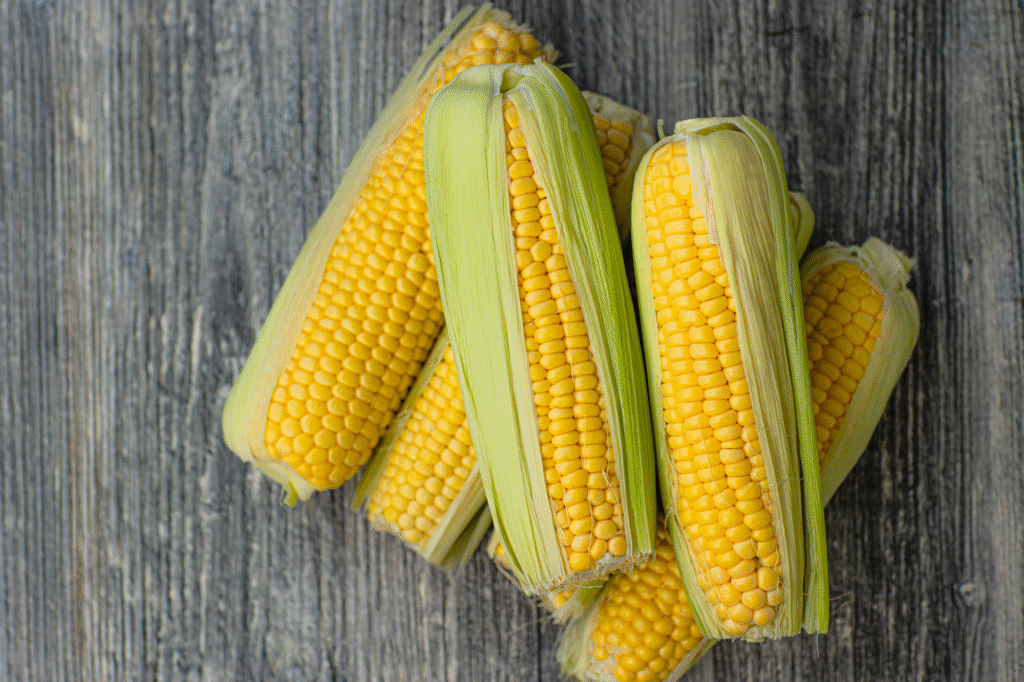
Dogs love gnawing on corn cobs, but the dense material and irregular shape make them extremely dangerous once swallowed. They often get stuck in the stomach or intestines, causing severe pain and blockages that rarely pass on their own. Even dogs that regularly eat bones or chew toys can’t handle a corn cob safely, and many emergency vets consider them one of the most frustrating preventable causes of gastrointestinal surgery.
7. Cooked bones splinter like glass inside.
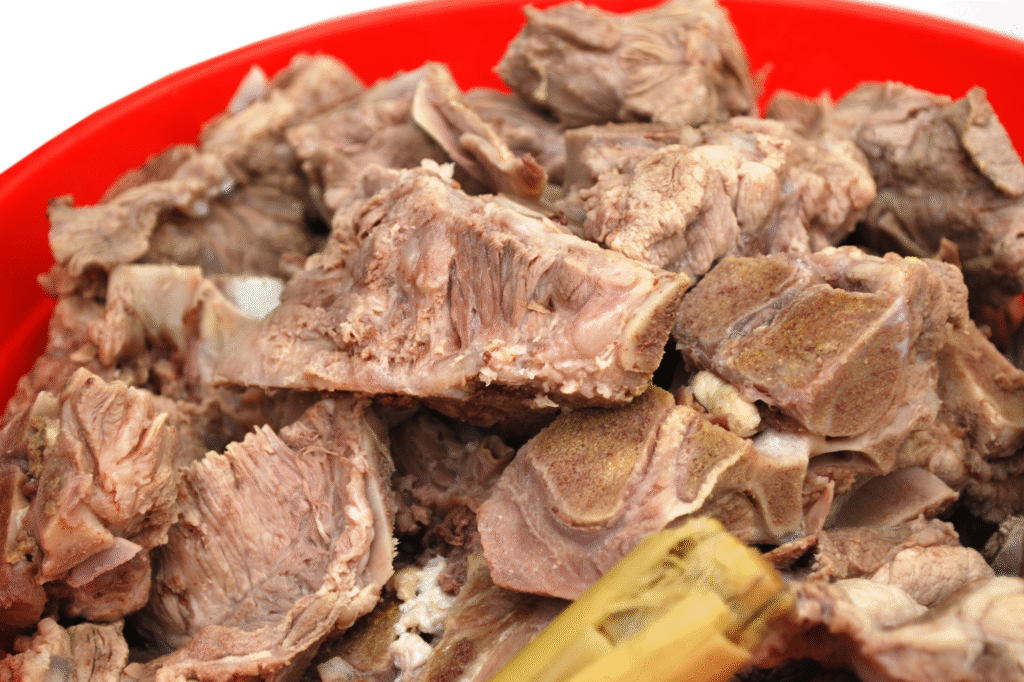
Unlike raw bones, cooked bones from table scraps break into sharp shards when chewed, damaging the mouth, esophagus, and intestines. Bleeding, blockages, and life-threatening perforations are common complications. Dogs are naturally drawn to meat-covered bones, but this risk makes them one of the worst food scraps to offer. Emergency vets often warn that feeding cooked bones is one of the most easily avoided reasons for late-night surgeries.
8. Hair ties create twisted messes deep inside.

Dogs often swallow hair ties, which seem harmless but easily tangle and knot inside the stomach and intestines. Once lodged, they can cut off blood supply to parts of the intestine, requiring emergency surgery. Small breeds and young dogs are particularly at risk because even one hair tie can cause a serious blockage. Keeping them off the floor and out of reach is an easy way to eliminate a surprisingly common hazard.
9. Essential oils trigger sudden toxic reactions.

Many essential oils, including tea tree, eucalyptus, and peppermint, can poison dogs through ingestion or even skin contact. Symptoms often start with drooling and vomiting but can escalate to seizures and organ damage. Diffusers or spilled oils are common causes, especially in small apartments where scents linger. Despite being marketed as natural, these oils can pack a dangerous punch for dogs whose systems can’t metabolize them safely.
10. Trash can raids end in chaos and surgery.
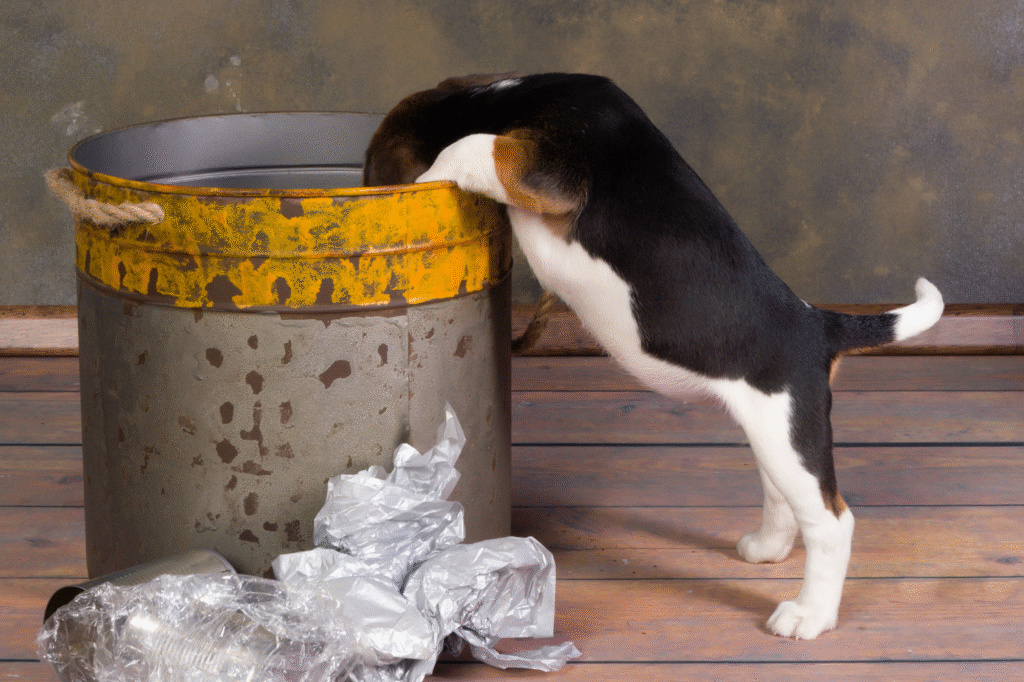
Dogs have an instinct to scavenge, which often leads to raiding kitchen or bathroom trash. Spoiled food, sharp packaging, and toxic items like coffee grounds or cleaning wipes can cause poisoning or blockages. Emergency vets see countless dogs needing surgery or intensive care after trash-related accidents. Simple measures like lidded trash cans or keeping bins behind closed doors prevent these entirely avoidable emergencies that keep clinics busier than they should be.
